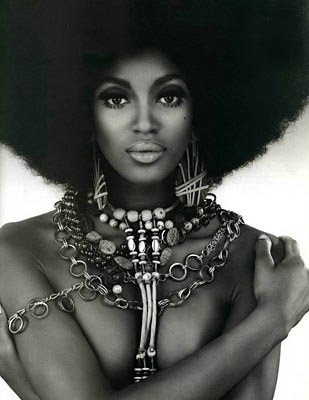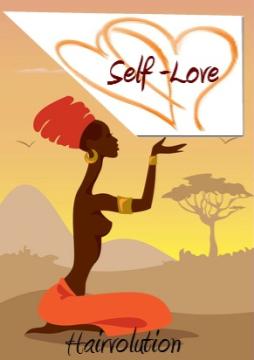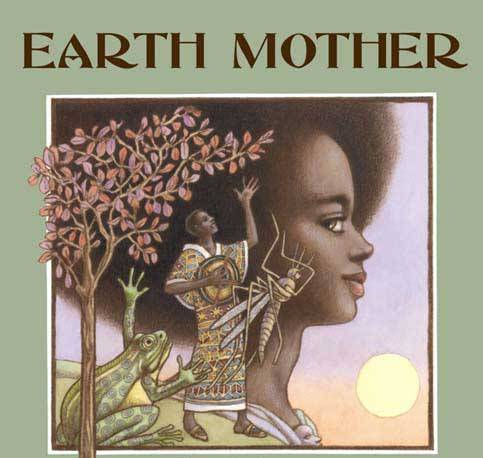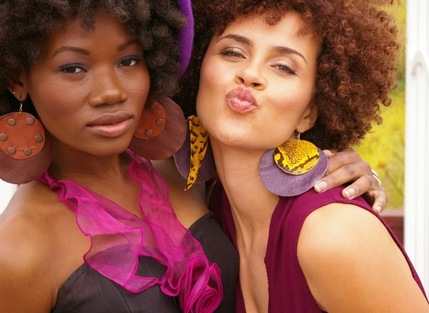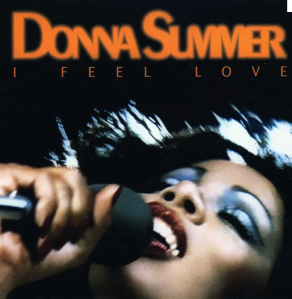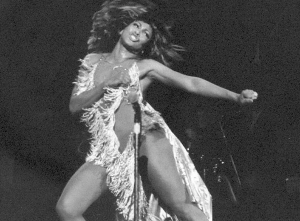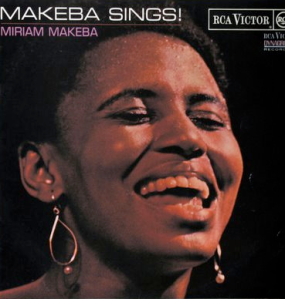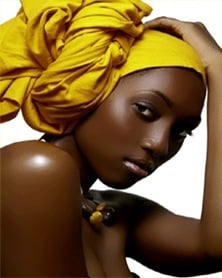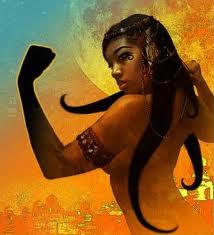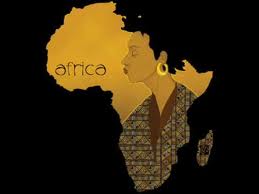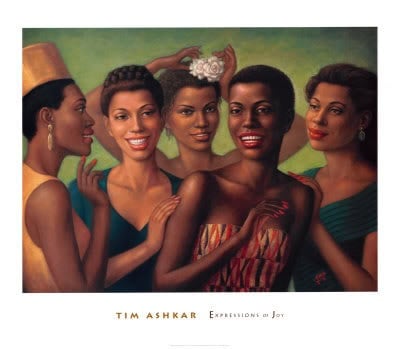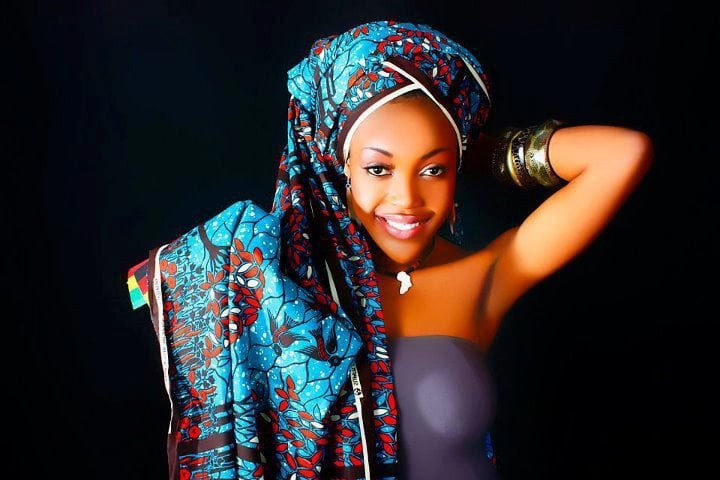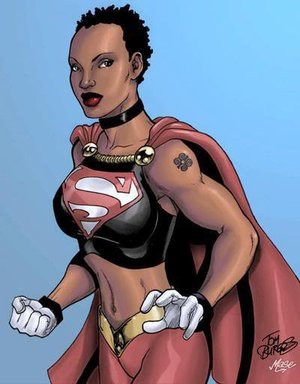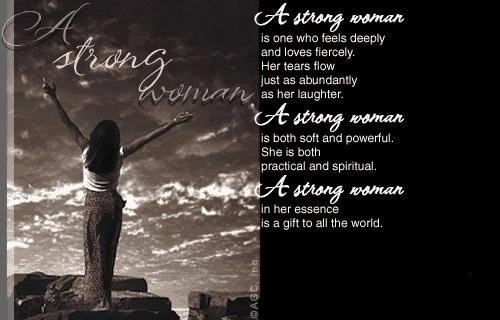Our Favourite Black Women Musicians
Music for many of us is much more than a background accompaniment. It speaks to us in various ways, from providing us with political and social commentary, giving voice to buried feelings and ideas we ourselves may not have been aware of through to uplifting us in our darkest moments. We have asked each other about our favourite black female musicians in order to celebrate music that has given us hope and inspiration.
Erykah Badu
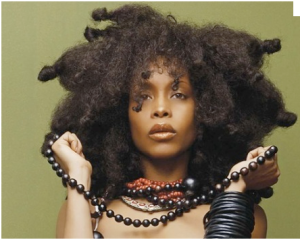
I love this woman! She is a visionary and a true artist. Erykah Badu might be most notable for her style and her ‘On &On’ song in the late 90’s. I never was really truly interested in her music until 2 years ago. I used to skip her songs on compilation albums when I was younger. Now I have all her albums, playing them all day long without skipping a song. I heard ‘Window Seat’ on the radio and was drawn in by her funkalicious soulful sounds. I feel through her music she inspires black women to be themselves and to be individuals. I feel that when I listen to her music, I am on a psychedelic journey of discovery. Her music connects with me spiritually and lifts me higher. Her music is food to my inspiration and creativity. I would encourage Erykah Badu doubters to listen to Erykah’s ‘Live’ album and I’ll gurantee you’ll be hooked. Some
of my favourite Erykah Badu songs are: ‘Next Lifetime’, ‘Tyrone’, ‘Cleva’, ‘ My Life’, ‘Orange Moon’, ‘Me’, ‘Solider’, ’20 Feet Tall’, ‘Window Seat’, ‘ Gone Baby, Don’t Be Long’ and ‘Love of My Life’. I would love to see her live!
Kassandra
Donna Summer
Until Donna Summer, Black female singers fell into two camps for me: big ballad Whitney types, or Girl Groups. They sang soulful songs, mainly about love, or pain, or love and pain – and most of all, they were clean cut. Good girls. If they were sexy it was within highly controlled parameters, their expression shaped and defined by someone else.
Donna Summer changed all this for me. Suddenly a woman with a sexuality, singing a sort of disco dance and not really looking bothered about who listened and what they thought. Later on in her career she would relaunch herself as a Gospel artist, but 1970s Donna was rebellious, complex, sexual and confident. I LOVED her.
Anouchka
Nneka
There are too, too many black female musicians I would love to pick and write about for this blog post, I am, however, being good and keeping to one :-/
I have chosen Nneka partly because she is a proud Nigerian. But mainly because, to me at least, she is the true inheritor of Fela Kuti’s imposing legacy. Her music is dynamic and pulsates with political and social commentary that is, unfortunately, lacking in much of the mainstream music that many young Nigerians listen to today. Her song ‘Africans’ (above) tackles the ways in which Africa’s colonial history has been abused by corrupt neo-colonial leaders, yet it does so without forgetting to emphasis the damaging legacy of Western imperialism. Live, she is flawless and approaches performances with a refreshing lack of affectation. She is, sadly, if unsurprisingly, little known in Nigeria, could her femaleness be acting against her? Or is that too much of a cliché? …I wonder.
Lola
DK Pattamal
 I adore music – listening to and singing myself is one of the main ways I express emotions. Growing up learning Karnatic (classical South Indian) music and given how little it’s acknowledged in British society, for my black woman musician pick, it had to be one of the great women singers in Karnatic music. But which one? The obvious choice was MS Subbulakshmi, the first musician to be awarded the Bharat Ratna. She did more than anyone else to raise the profile of Karnatic music inside India and internationally through her acting and singing in films and by performing before the United Nations.
I adore music – listening to and singing myself is one of the main ways I express emotions. Growing up learning Karnatic (classical South Indian) music and given how little it’s acknowledged in British society, for my black woman musician pick, it had to be one of the great women singers in Karnatic music. But which one? The obvious choice was MS Subbulakshmi, the first musician to be awarded the Bharat Ratna. She did more than anyone else to raise the profile of Karnatic music inside India and internationally through her acting and singing in films and by performing before the United Nations.
However, as a feminist, I decided to go for a woman who broke gender barriers. Her mother, despite her talent, was not able to sing in front of even family and friends despite her talent in line with orthodox tradition. DK Pattamal became one of the greats of the Carnatic stage despite being almost completely self taught. She was the first Brahmin woman to perform in public, thereby breaking class, caste and gender taboos. She was also the first woman to perform the ragam tanam pallavi, the most difficult concert item requiring the most skill and therefore thought beyond the imaginative and technical ability of women. She was an excellent teacher, training her younger brother DK Jayraman and had an absolutely exquisite voice. She died in 2009 at the age of 90. It’s one of the my lasting regrets that I did not hear her perform in concert.
Chitra
Nina Simone
Lyrics:
My skin is black, my arms are long
My hair is woolly, my back is strong
Strong enough to take the pain, inflicted again and again
What do they call me? My name is aunt Sarah
My name is aunt Sarah, aunt Sarah
My skin is yellow, my hair is long
Between two worlds I do belong
But my father was rich and white
He forced my mother late one night
And what do they call me?
My name is Saffronia, my name is Saffronia
My skin is tan, my hair fine
My hips invite you, my mouth like wine
Whose little girl am I? Anyone who has money to buy
What do they call me? My name is Sweet Thing
My name is Sweet Thing
My skin is brown, my manner is tough
I’ll kill the first mother I see, my life has been rough
I’m awfully bitter these days, because my parents were slaves
What do they call me? My name is Peaches
It tells the story of four different African American women. Each of the four characters represents an African American stereotype in society. “An instantly accessible analysis of the damning legacy of slavery, that made iconographic the real women we knew and would become.” –Thulani Davis
Raised in a family of eight children, she originally harbored hopes of becoming a classical pianist, studying at New York’s prestigious Juilliard School of Music — a rare position for an African-American woman in the 1950s. Needing to support herself while she studied, she generated income by working as an accompanist and giving piano lessons. Auditioning for a job as a pianist in an Atlantic City nightclub, she was told she had the spot if she would sing as well as play. Almost by accident, she began to carve a reputation as a singer of secular material.
Like many African-American entertainers of the mid-’60s, Simone was deeply affected by the Civil Rights Movement and burgeoning Black Pride. Some of her best material from this time addressed these concerns “Old Jim Crow” and, more particularly, the classic “Mississippi Goddam” were especially notable self-penned efforts in this vein.
Samantha
Tina Turner
It would be impossible to have a post about our favourite black feminist musicians without the one and only Tina Turner making an appearance. Turner is the owner of a pair of lungs so forceful they could pin a grown man against the wall and a life story so turbulent the retelling of it could bring anyone with a soul to tears after just a few minutes.
I love her because not only did she make her mark as one of the best RnB vocalists in the 60s / 70s whilst trying to survive her volatile marriage to Ike with songs such as ‘River Deep Mountain High’ and ‘Nutbush City’, but she also made a successful comeback into the music industry after her divorce from Ike.
At this time Turner had been out of the limelight for a number of years, had little to nothing to her name and was in her early forties (a rough time for women in showbiz). Despite all of these supposed setbacks she made one of the best comebacks of all time and also one of the best karaoke songs of all time (link: http://www.youtube.com/watch?v=aIrCFrFpHvw). During this time she also managed to find a new way to say ‘got’ (link:http://www.youtube.com/watch?v=YqWkFF-TbMU) and spent hundreds of hours perfecting that perfect, 80s backcombed look.
Turner’s best song has to be the Creedence Clearwater Revival cover ‘Proud Mary’, which in Ike and Tina’s hands goes from being a great song to an amazingly life changing song with epic dancing thrown in for good measure. It makes me feel better about the state of music to know that Tina is still going, flying the pop flag to show us the right way to do it.
Lijadu sisters
The Lijadu Sisters, identical twin sisters Taiwo and Kehinde Lijadu, who decided to make forward thinking, funk, post-punk music in 1970s Nigeria, which, as you could imagine, was not an easy task. The sisters had to fight for their right to be heard and remembered, they have recently released a collection of their greatest hits, in an industry and decade that didn’t want to hear women sounding anything other than ‘nice’.

As you’d expect their sound could be described as many things but never ‘nice’. They sing the same thing at the same time throughout all their songs, which takes a while to get used to at first. Jagged guitars and nagging synths constantly weave themselves in and out of songs that are based around a steady, afrobeat rhythm. I know. It’s a lot to get your head around. Too many genres, too much to think about but stay with me here.
Not only is their music interesting but their lyrics show that the sisters were more than just two pretty faces. ‘Danger’ documents a turbulent relationship with, what we are to assume is a violent lover, as the sisters sing that he “came into my life and dispersed danger”. ’Cashing In’ is a cynical take on the consumerist world, which sees the sisters shout in unison ”We’re cashing in, prostitution, yeah, we’re cashing in, revolution yeah / Poverty is still a common sight.” It’s that kind of social commentary that you would expect to hear from The Clash or X-Ray Spex, which makes the Lijadu Sisters so intriguing.
There are a few interviews with the sisters here and there but not enough. I wish there were more out there about them that I could find but short of going on a trip to Nigeria and asking them myself, some questions may have to remain unanswered. In the meantime I’ll be listening to their recently released best of album (link:http://www.amazon.co.uk/dp/B005K8H8VG/ref=nosim?tag=guardianreviews-21) and then finding someone who looks slightly like me to sing in unison with. I think it’s a good plan.
Steph
Miriam Makeba
Miriam Zenzi Makeba, died just four years ago (March, 2008), but everytime I hear her, she is as alive to me as ever. I was first enamoured when I saw a recording of her on stage, comically berating Westerners for asking her what that ‘sound’ is that she makes – only to tell them sharply that it is not a sound, it is her language. The Click song is still one of her most famous (http://www.youtube.com/watch?v=3m_TEq2E4cs)
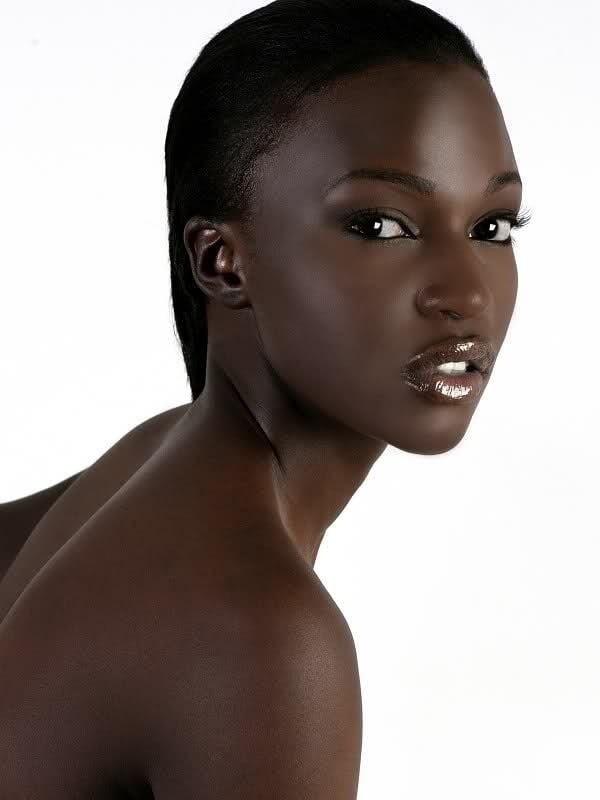
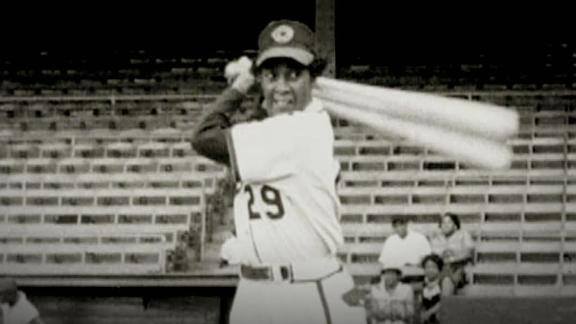
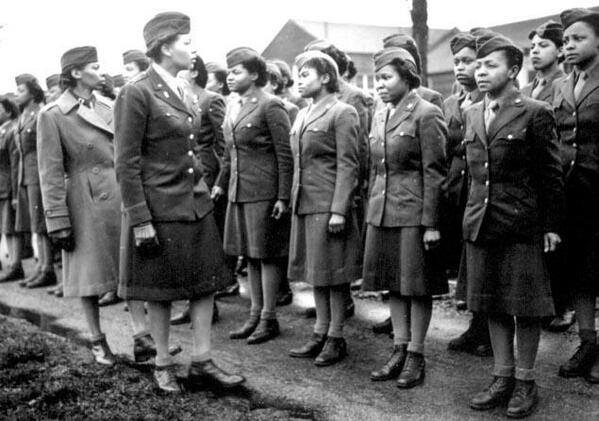
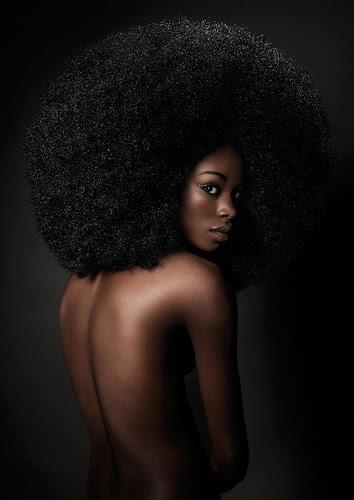
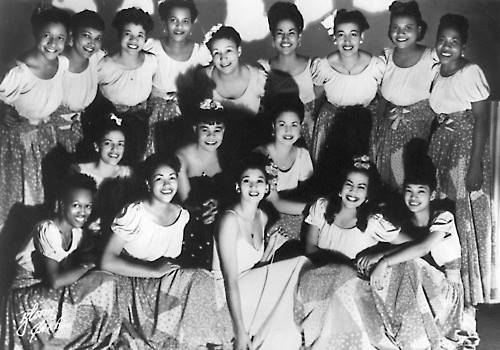
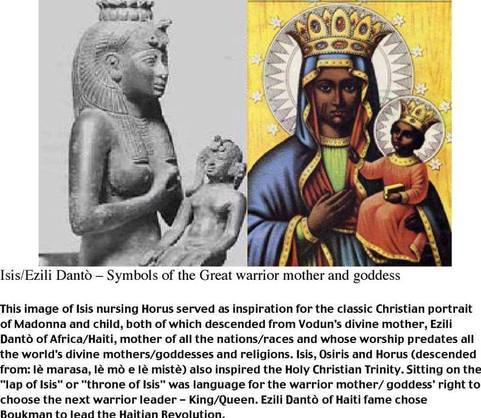

 organisation developed in 2000 with a vision to tackle educational underachievement by using Jamaican proverbs. Traditional sayings written on playing cards are used to engage pupils and adults and promote learning. She won the Silver Capacity Building Award at the prestigious British Female Inventors and Innovative Awards in 2005 and the Wavemakers award in 2006. She also co-founded the MyPal life skills programme which began with one class but is now cascaded throughout West Thames College.
organisation developed in 2000 with a vision to tackle educational underachievement by using Jamaican proverbs. Traditional sayings written on playing cards are used to engage pupils and adults and promote learning. She won the Silver Capacity Building Award at the prestigious British Female Inventors and Innovative Awards in 2005 and the Wavemakers award in 2006. She also co-founded the MyPal life skills programme which began with one class but is now cascaded throughout West Thames College. black people with mental health issues in particular the death of
black people with mental health issues in particular the death of  businesswomen in the West End were rare. Her unique idea was to make training mobile rather than fixed hence the name
businesswomen in the West End were rare. Her unique idea was to make training mobile rather than fixed hence the name  the University of Southern California where she gained an MFA in Screenwriting she also holds a post-graduate diploma in Creative Writing from Goldsmiths College and an honours degree in English Literature from the University of Sheffield. Her pioneering writing efforts led to the recent Lagos to London set of plays at Oval theatre. Performances were sold out until the white director decided to quit after Ade protested over his idea to project prison cell bars onto the performers. She is hosting this months African Odyyseys event on Black Women on Screen at the BFI on Sat 18 June details below
the University of Southern California where she gained an MFA in Screenwriting she also holds a post-graduate diploma in Creative Writing from Goldsmiths College and an honours degree in English Literature from the University of Sheffield. Her pioneering writing efforts led to the recent Lagos to London set of plays at Oval theatre. Performances were sold out until the white director decided to quit after Ade protested over his idea to project prison cell bars onto the performers. She is hosting this months African Odyyseys event on Black Women on Screen at the BFI on Sat 18 June details below sacrifice led to the repeal of the notoriously racist 'sus' law in 1981. Until the Scrap Sus Campaign came along it was normal for black children aged 7 and above to be arrested and locked up in police cells for simply walking the streets. She was honoured at an event arranged by BHW on May 13 2011.One of her strategies for self defence was to scan the media for inaccurate or negative stories about black people and immediately contact the producers and deliver a response.
sacrifice led to the repeal of the notoriously racist 'sus' law in 1981. Until the Scrap Sus Campaign came along it was normal for black children aged 7 and above to be arrested and locked up in police cells for simply walking the streets. She was honoured at an event arranged by BHW on May 13 2011.One of her strategies for self defence was to scan the media for inaccurate or negative stories about black people and immediately contact the producers and deliver a response. film screenings and the extra special 10th anniversary. The BFM was, at one time, the only source of positive African-centred film. They offered a monthly oasis of eclectic films where the black image was treated with respect . Her work is fundamental to the growth of black film exhibition in England.
film screenings and the extra special 10th anniversary. The BFM was, at one time, the only source of positive African-centred film. They offered a monthly oasis of eclectic films where the black image was treated with respect . Her work is fundamental to the growth of black film exhibition in England. encountered at schools in London began organising small, one-off events on black history at local schools. She noticed the lack of culturally appropriate books and set up
encountered at schools in London began organising small, one-off events on black history at local schools. She noticed the lack of culturally appropriate books and set up  within the NHS (including being given an white imitation breast to replace her own surgically removed breast) Marina founded
within the NHS (including being given an white imitation breast to replace her own surgically removed breast) Marina founded  She walks the streets of Peckham informing women of the realities of breast cancer. Rather than upgrading her masters in Molecular Biology to a more status-enhancing doctorate, she preferred to undertake yet another Masters degree in Public Health she is also learning Spanish so she can work in Latin America. All of this study is done in her 'spare' time . As a direct result of presenting at the BHW event on Breast Cancer in May 2011 both Marina and Abi have been invited to present their pioneering work at a hospital and college in Harlem New York.
She walks the streets of Peckham informing women of the realities of breast cancer. Rather than upgrading her masters in Molecular Biology to a more status-enhancing doctorate, she preferred to undertake yet another Masters degree in Public Health she is also learning Spanish so she can work in Latin America. All of this study is done in her 'spare' time . As a direct result of presenting at the BHW event on Breast Cancer in May 2011 both Marina and Abi have been invited to present their pioneering work at a hospital and college in Harlem New York. speak for an hour at the Brixton Mosque. The response was so intense that a further half day session was arranged. Since that time Breast Cancer has featured in the american Nation of Islam newsletter and the Brixton sisters have literally been out on the streets of Lambeth knocking on the doors of local estates raising awareness of the realities of the triple N variant. Sister Ishea also runs events on Prostate Cancer and recognised the service of people like Abi at a recent NOI awards ceremony.
speak for an hour at the Brixton Mosque. The response was so intense that a further half day session was arranged. Since that time Breast Cancer has featured in the american Nation of Islam newsletter and the Brixton sisters have literally been out on the streets of Lambeth knocking on the doors of local estates raising awareness of the realities of the triple N variant. Sister Ishea also runs events on Prostate Cancer and recognised the service of people like Abi at a recent NOI awards ceremony. this country. There is a book to be written on her career quite apart from her pioneering Thalessima and Sickle Cell work. She is currently leading the Mary Seacole statue appeal which plans to erect a statue to this British/Jamaican hero in the grounds of St Thomas hospital. When accomplished it will be only the second statue of a black woman in London, the other is in the traffic island next to Stockwell tube station.
this country. There is a book to be written on her career quite apart from her pioneering Thalessima and Sickle Cell work. She is currently leading the Mary Seacole statue appeal which plans to erect a statue to this British/Jamaican hero in the grounds of St Thomas hospital. When accomplished it will be only the second statue of a black woman in London, the other is in the traffic island next to Stockwell tube station. Black Power movement. In the 1960's when when it was considered normal and legal to rape your wife and when there were signs in the street saying Keep Britain White, Margaret set up her own publishing company. She went on to befriend and publish CLR James, Buche Emecheta, Sam Greenlee, Chester Himes, George Lamming, Nurudin Farah, Hunter S Thompson, Michael Moorcock, Anthony Burgess, Boris Pasternak,H Rap Brown and others. Without her efforts many of these authors would still be unkown. BHW will be arranging an event in her honour later this year.
Black Power movement. In the 1960's when when it was considered normal and legal to rape your wife and when there were signs in the street saying Keep Britain White, Margaret set up her own publishing company. She went on to befriend and publish CLR James, Buche Emecheta, Sam Greenlee, Chester Himes, George Lamming, Nurudin Farah, Hunter S Thompson, Michael Moorcock, Anthony Burgess, Boris Pasternak,H Rap Brown and others. Without her efforts many of these authors would still be unkown. BHW will be arranging an event in her honour later this year. number of different groups to combat racism and sexism. One of these groups is
number of different groups to combat racism and sexism. One of these groups is  recognise her multiple achievements. To choose a couple, her website
recognise her multiple achievements. To choose a couple, her website  dedicated her mind to study. She recently graduated from City university with her post graduate degree in Optometry. This makes her a part of a tiny number of black female optometrists. Her story is even more remarkable considering she escaped internment camps and hostile soldiers in East Africa then overcame bullying and exclusion in England to achieve academic and professional success.
dedicated her mind to study. She recently graduated from City university with her post graduate degree in Optometry. This makes her a part of a tiny number of black female optometrists. Her story is even more remarkable considering she escaped internment camps and hostile soldiers in East Africa then overcame bullying and exclusion in England to achieve academic and professional success. women in films so in 2004 she co-founded the
women in films so in 2004 she co-founded the  Nadifa has written one of the few novels,
Nadifa has written one of the few novels,  because she was from a council estate and was 'geeky'. Ignoring this advice she went on to become a national newsreader, founded and sold a media business, obtained a doctorate in International Relations a year ahead of schedule and then travelled the world. While on safari in Kenya she noticed that the other tourists were more interested in the local animals than the local people and decided to set up a scholarship for young girls. 5 years on, the young women are now educating their community.
because she was from a council estate and was 'geeky'. Ignoring this advice she went on to become a national newsreader, founded and sold a media business, obtained a doctorate in International Relations a year ahead of schedule and then travelled the world. While on safari in Kenya she noticed that the other tourists were more interested in the local animals than the local people and decided to set up a scholarship for young girls. 5 years on, the young women are now educating their community. talents. She has used her many skills to help the youth of Haringey and Africa. In 2002 she set up KORI Arts, a thriving social enterprise which has developed incredible young mentors who then spread their skills across the community. Last year she raised £10,000 to take 18 teenagers to Tanzania (for the fourth time) where they used drama as an educational tool in small villages. She then raised a further £5000 to bring some of the Tanzanian youth to London.
talents. She has used her many skills to help the youth of Haringey and Africa. In 2002 she set up KORI Arts, a thriving social enterprise which has developed incredible young mentors who then spread their skills across the community. Last year she raised £10,000 to take 18 teenagers to Tanzania (for the fourth time) where they used drama as an educational tool in small villages. She then raised a further £5000 to bring some of the Tanzanian youth to London. Malcolms Echo
Malcolms Echo make her own contribution to positive media about black people. She joined an all white Sudan study group at the British museum, spent a couple of years enduring slights and stereotypical comments, learned the history of ancient Sudan, re-interpreted that history from an African perspective and weaved that history into a childrens book and learning resource. Just for good measure, to avoid the racism in the publishing industry, she self published and distributed
make her own contribution to positive media about black people. She joined an all white Sudan study group at the British museum, spent a couple of years enduring slights and stereotypical comments, learned the history of ancient Sudan, re-interpreted that history from an African perspective and weaved that history into a childrens book and learning resource. Just for good measure, to avoid the racism in the publishing industry, she self published and distributed  producing her own media. Not content with two books she also writes a blog, hosts her own internet radio show and runs workshops on African-centred health using Spiritual Response Therapy
producing her own media. Not content with two books she also writes a blog, hosts her own internet radio show and runs workshops on African-centred health using Spiritual Response Therapy whites to orally rape them. June over-achieved academically despite tremendous adversity while assisting with the fight for freedom. She survived police raids, attempted kidnap and numerous other idigniites before becoming part of Mandelas administration after his election in 1994. The book
whites to orally rape them. June over-achieved academically despite tremendous adversity while assisting with the fight for freedom. She survived police raids, attempted kidnap and numerous other idigniites before becoming part of Mandelas administration after his election in 1994. The book 